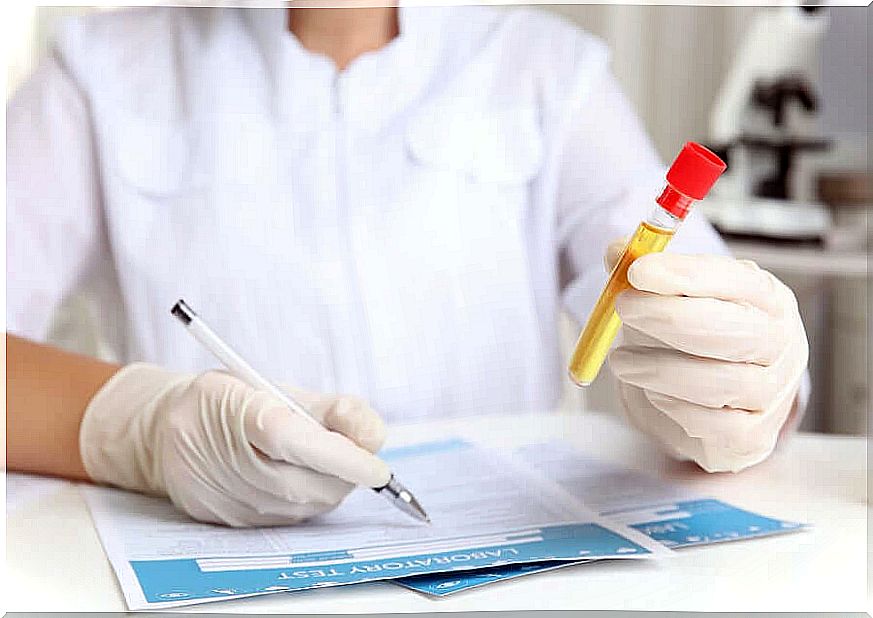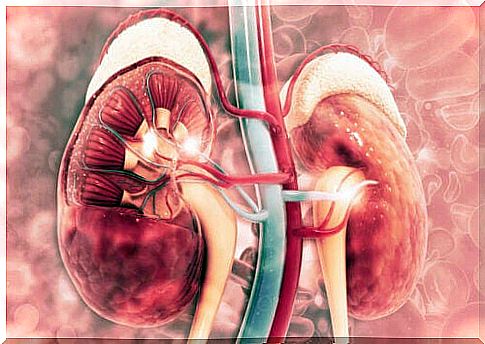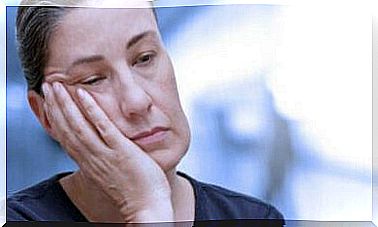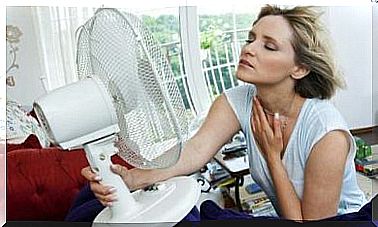Treatment Of Low Urinary Creatinine
Low urinary creatinine is a pathological condition that can go unnoticed if not properly studied. The more dangerous situation than the cause is kidney failure and requires immediate treatment.

A diagnosis of low urine creatinine is not common or immediate in the general population. Doctors measure these values more regularly in people with kidney disease.
Creatinine is a biochemical parameter of blood and urine, which is strongly related to the kidneys. For nephrologists, this is a routine, routine examination used in the follow-up of their patients.
In reality, this substance is a waste of muscle metabolism. When our muscle fibers are working, they generate creatinine, a product that must be eliminated. Therefore, the elimination route is through the kidneys and urine.
That’s why we track creatinine in the blood and urine to measure it. In the blood, we find it in the form of waste freshly made by the muscle. And in the urine we measure the amount of this waste that is expelled to the outside.
Usually, only blood creatinine is measured in general visits. But, if kidney disease is suspected, it should be combined with a urine creatinine test. The most widely used method for this is creatinine clearance.
By comparing the levels of the substance in the blood and in the urine, we can detect specific abnormalities. Faced with low urinary creatinine and high blood creatinine, kidney failure is suspected.
Creatinine clearance
This useful test for detecting low urine creatinine has several names: creatinine clearance, purge or clearence . All of these terms identify the same methodology whose objective is to report the level of creatinine filtered by the kidneys in the blood.
To achieve the result, blood and urine samples must be taken. Urine is collected for an entire day, 24 hours a day, and then delivered to the laboratory for analysis.
The biochemist then implements the corresponding techniques and then applies a formula called the glomerular filtration rate. This is a mathematical formula that measures the filtering power of the kidneys at the time.
In addition, the values are generally expressed in millimeters per minute, and are considered normal:
- In men: between 97 and 137 mL / min
- In women: between 88 and 128 mL / min

Causes of low urinary creatinine?
If low doses of creatinine are collected in the urine following the tests, you may suspect:
- Kidney failure: this is a severe complication of the urinary system. This means that the kidneys are unable to perform their basic function of filtering the blood and toxic waste accumulates in the blood. This condition requires immediate consultation with a nephrologist as well as other complementary methods.
- Loss of muscle mass: When creatinine is low in urine and blood, there may be loss of muscle mass. Indeed, when the metabolism of the muscles decreases, the concentrations of creatinine fall. This is common in older people and those going through episodes of sudden weight loss.
- Diet: low intake of protein foods deprives the body of raw material for muscles. Therefore, it also reduces muscle metabolism, which leads to lower creatinine
- Pregnancy: during pregnancy, there are situations that alter the dynamics of the kidneys. By itself, creatinine production tends to decrease physiologically. But it can also be a sign of seriousness due to a complicated UTI or changes in blood pressure that lead to preeclampsia or eclampsia.
- Autoimmune diseases: some autoimmune diseases attack the muscles and kidneys. Myasthenia gravis, for example, as well as certain muscular dystrophies as well. Usually, other altered parameters are detected before the creatinine drop.

Treatment of low urine creatinine
The approach to low urinary creatinine will depend exclusively on the cause. It is not the same to treat kidney failure as a poor diet, nor to support a pregnant woman.
In the event of renal failure, the priority is to consult a nephrologist. On the other hand, some diseases that cause kidney failure can be treated with medication and special care, while others inevitably lead to dialysis.
In the case of pregnant women, the risk is significant. Obstetricians and gynecologists use approved drugs during pregnancy to treat kidney problems. However, when the clinical picture is that of pre-eclampsia, hospitalization is necessary in order to have specific control of the parameters.
Finally, in situations where the diet is low in protein, or in the event of muscle loss, professionals evaluate nutritional measures. For this, nutritionists are able to establish dietary programs to increase protein intake without necessarily going overboard. As well as combine them with muscle toning exercises.
Remember that, although it is little suspected, low urinary creatinine is not to be neglected. Indeed, it requires professional monitoring of the various cases as well as compliance with medical indications in order to prevent serious complications.









